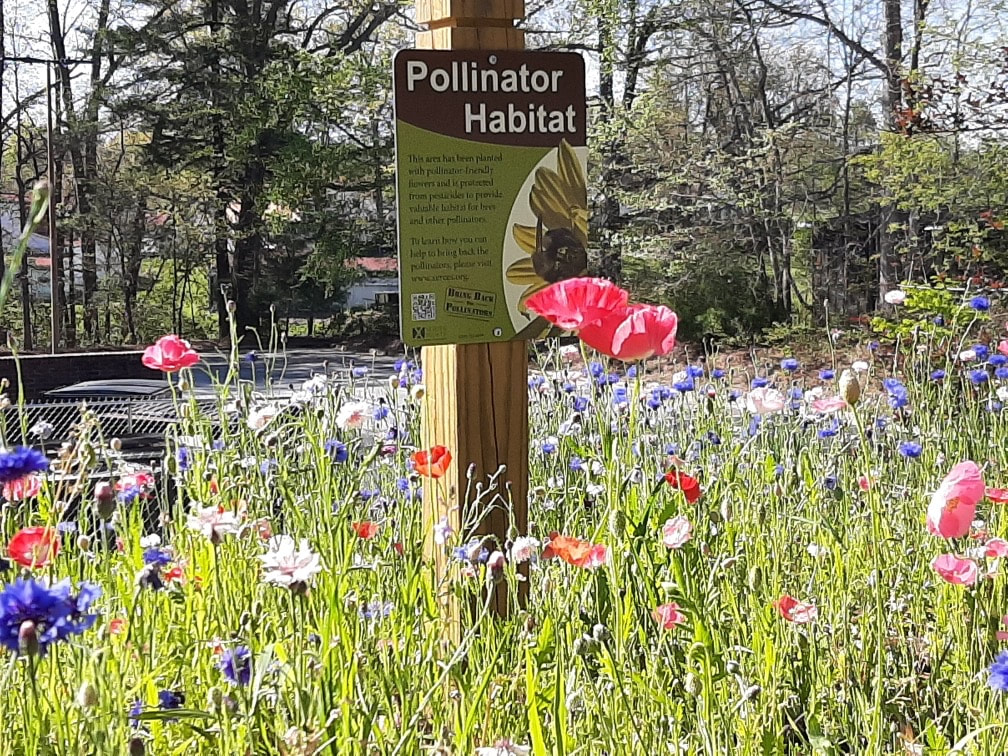
In 2019, Blue Ridge’s Bee Campus committee and Hendersonville’s Bee City committee worked together to participate in a variety of outreach events. The two committees hosted tables focused on pollinator outreach at the Bee Bold Pollinator Festival hosted by Bold Rock Hard Cider in August and the annual harvest celebration in November. The table included information on native plants, gardening for pollinators, the role of native bees and honey bees in food production, and even some bee trivia questions!
This was the inaugural Bold Rock Bee Bold Pollinator Festival, and Blue Ridge’s Bee Campus committee along with Hendersonville Bee City USA aimed to raise awareness of the importance of pollinators. Without the pollination services provided by bees, apple trees would not bear the fruit required for Bold Rock to produce their cider. No bees, no Bold Rock! This festival celebrated pollinators and educated the community about these species which are also crucial members of the community.
Blue Ridge also hosted the Western North Carolina Gardening Symposium where speakers shared information about gardening and the ways in which gardeners can create habitat for bees and other pollinators.
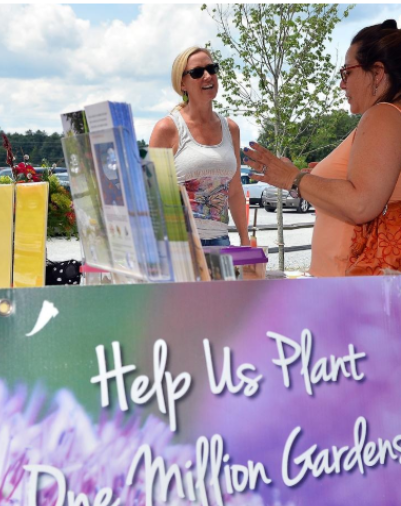
Blue Ridge was excited to plant four pollinator-friendly habitats on campus in 2019, encompassing over an acre of land. The college worked with the U.S. Fish and Wildlife Service to source seed and design and install the habitat. The U.S. Fish and Wildlife Service donated seeds, which included a North Carolina mountains meadow mix, butterfly and hummingbird garden mix, and a mesic-dry mix. A representative from U.S. Fish and Wildlife helped the Bee Campus Committee designate the best areas for pollinator habitat and advised on where to plant different species. All donated seeds were planted by the Facilities Director, Groundskeeper, and grounds crew. As winter has turned to spring, the campus community has enjoyed watching these new pollinator habitats come to life.
In May of 2019, Blue Ridge student leaders planted a Monarch Waystation on campus. Students planted milkweed received through a grant from Monarch Watch, along with other native species. Many of the students had never worked in a garden before, so this was a great opportunity for them to learn about gardening and native plants. The Grounds Supervisor provided guidance and assistance to the students along the way. Students had a fantastic time learning and working together to create habitat. This spring the students involved in planting will register the garden as an official Monarch Waystation.



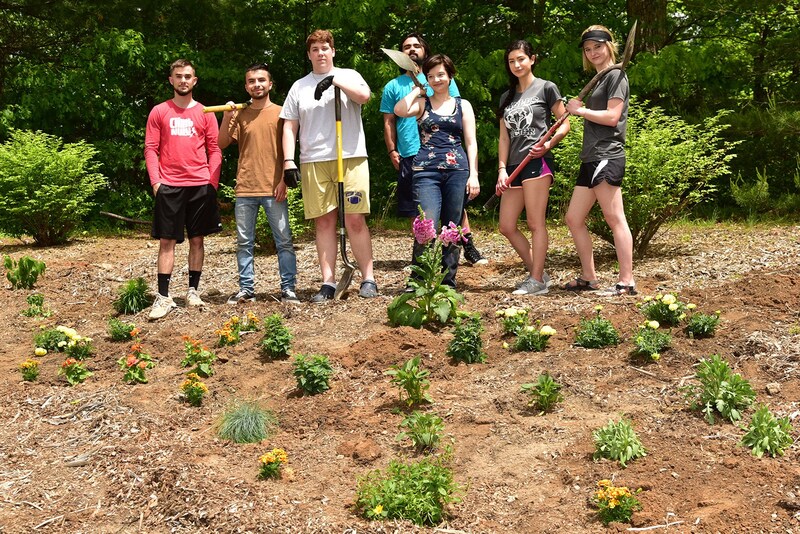
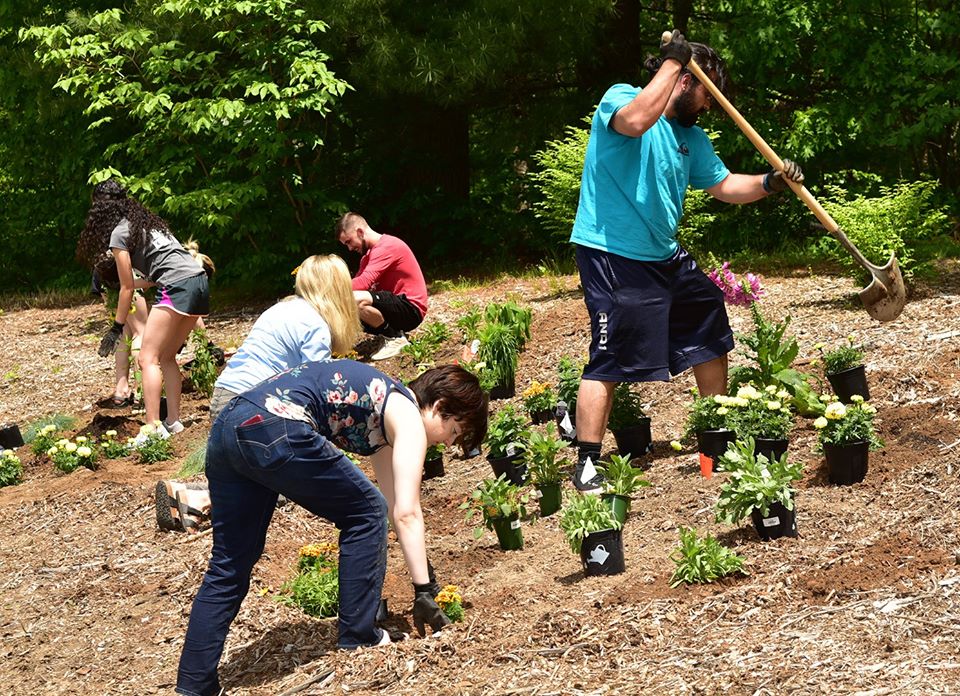
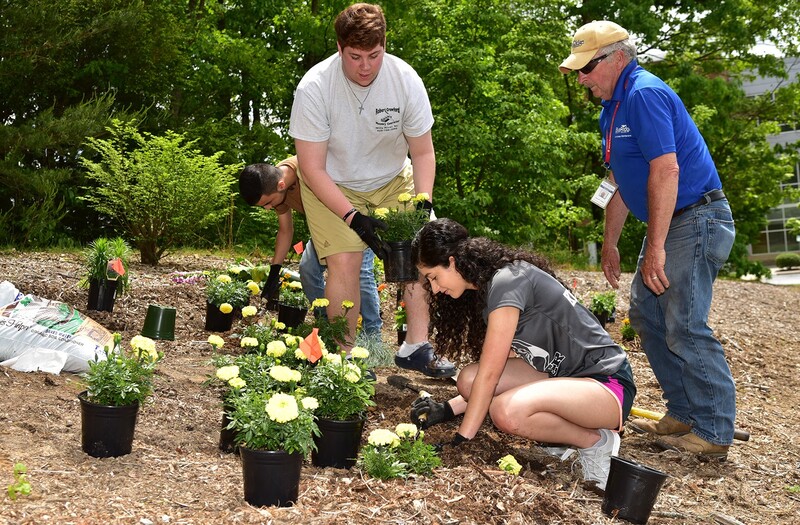
Blue Ridge has worked to improve habitat for pollinators not only through expanding floral resource availability but also by reducing the use of pesticides. Pesticide use has been reduced throughout the campus’ landscaping, including on the college’s lawns. The Grounds Department is committed to not spraying any flowering weeds while they are in bloom. These flowering weeds include dandelions, white clover, purple clover, henbit, and purple deadnettle. Learn more about Blue Ridge’s approach to managing pests while reducing negative impacts on pollinators and other wildlife by reading their integrated pest management plan
(https://www.blueridge.edu/wp-content/uploads/2019/10/BRCC-Integrated-Pest-Management-Plan_a.pdf)
Blue Ridge looks forward to continuing their pollinator conservation work in the coming year and finding creative ways to expand their impact through collaborating with the Hendersonville Bee City USA committee.




